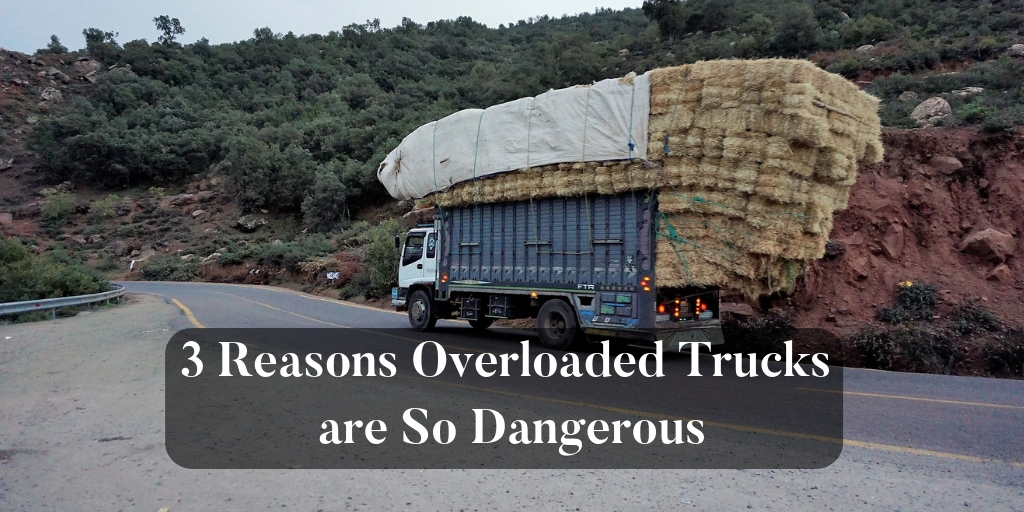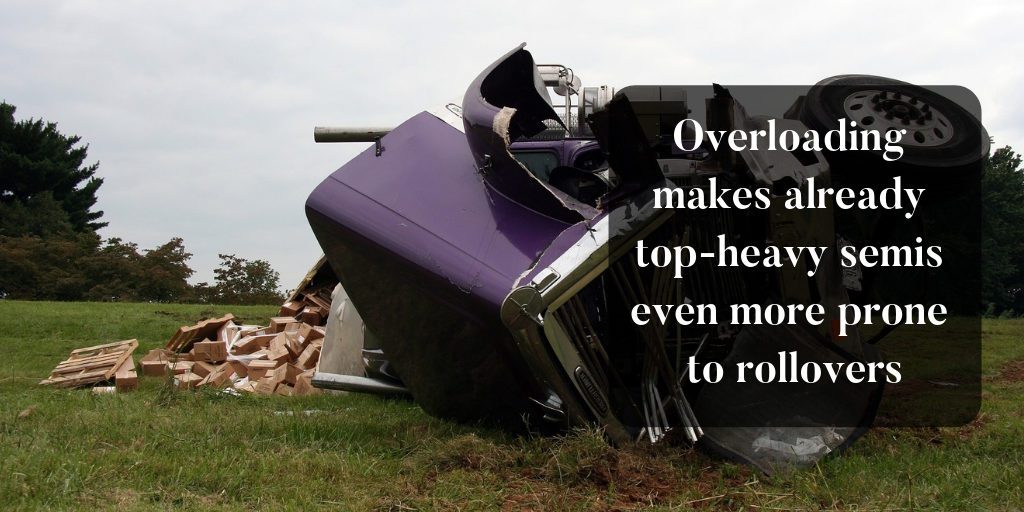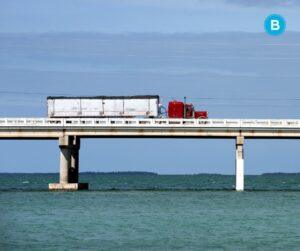
Each trip out of your driveway creates the potential for a car accident. The odds aren’t in anyone’s favor– with nearly 264 million vehicles registered and 218 million drivers holding a license, it comes as no surprise that about six million car accidents occur every year in the United States.
While every motorist is at some risk for experiencing an accident, crashes involving trucks tend to be even more dangerous. Preventing truck accidents is essential to limiting the annual number of injuries and deaths on U.S. highways.
One way truck drivers can make the roads a bit safer is through ensuring proper load sizes. Overloaded trucks are one of the leading causes of preventable traffic fatalities in the United States. Here are just a few reasons why overloaded trucks are so dangerous:
- Overloaded Trucks Make Braking Difficult
When commercial vehicles carry heavy loads, drivers must account for greater inertia by leaving greater stopping distances. If a driver miscalculates when to begin braking, he might not be able to bring the truck to a stop before rear-ending another vehicle. Additionally, the extra pressure of slowing the heavy load can cause brake mechanisms to fail, especially on downward slopes. By keeping loads within legal safety limits, drivers reduce the risk of braking errors or brake failure. - Overloaded Trucks Have Higher Rollover Risk
A truck with too much weight might experience cargo shifting, especially when rounding curves. If a load is too heavy, it can pull the truck onto its side mid-turn. Additionally, an overloaded truck with top-heavy cargo is more likely to roll over in high wind conditions. A truck that cannot counterbalance a heavy load simply won’t be as steady in different driving conditions, increasing the risk for rollover accidents.

- Overloaded Trucks Experience More Mechanical Failures
Finally, tractor trailers with illegally oversized loads experience greater strain on different vehicle mechanisms. Tires especially take on the burden of a heavy load, increasing the risk of tire blowouts. In rare cases, a truck axle could also snap under too much weight, which would likely lead to a dangerous or even deadly accident.
Any kind of car accident is frightening. Luckily, many kinds of crashes can be easily prevented. Tractor trailer drivers and fleet managers can help make the roads a little safer by strictly adhering to weight limit and load capacity regulations. Properly-sized loads are far less likely to experience the above road hazards that, in the worst case scenario, could end someone’s life. No matter the cargo, safer loads create safer roads.
Contact Brooks Law Group
Of all of the causes of prevent traffic fatalities, overloading is one of the easiest to fix. And yet, it’s still one of the leading causes in the country of these accidents. We can work out hardest to stay safe on the roads, but we can’t always prevent the shortcomings of others.
For a free legal consultation, call 800 529 3030
If you or a loved one was injured in a truck accident caused by the negligence of others, you have a right to compensation. At the Brooks Law Group, our attorneys and staff have the skill and experience needed to take on semi truck accidents. Our team is dedicated to providing the best client experience possible and ensuring you receive fair compensation. Call our offices at (800) LAW-3030 for your free, no obligation case evaluation today. You can also fill out the Free Case Evaluation form on our website. Start your journey to justice today!
Call or text 800 529 3030 or complete a Free Case Evaluation form




